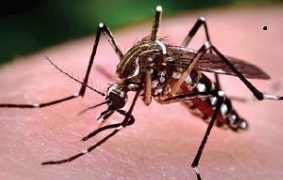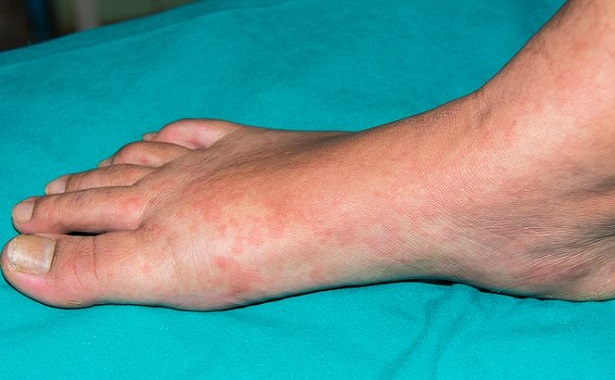#Trinidad and Tobago, May 14, 2018 – Port of Spain – While chikungunya and zika, which swept the region in 2014 and 2016 are not expected back anytime soon, CARPHA is warning, “gear-up for the possibility of a major outbreak of dengue fever in 2018.” This because as before, the pre-conditions of abundant mosquito vector levels still exist, and increased levels of dengue are being reported in Latin America and elsewhere.
It is imperative as rainy season begins in many countries that efforts to stop mosquitoes breeding and biting be stepped up, especially for pregnant women and vulnerable populations.
These mosquitoes borne diseases such as dengue, chikungunya and zika threaten health, tourism, social and economic development, so everyone needs to work together. Dengue remains a global health problem and like zika and chikungunya, there is no specific treatment for the disease.
“Although dengue is not new to the Region, we need to gear up for the possibility of a severe outbreak. This virus has been increasing in frequency over the past 30 years. Reports from Latin America elsewhere show markedly increased dengue in recent months, so we in the Caribbean can expect it will soon be here,” CARPHA Executive Director, Dr C. James Hospedales said in observance of Caribbean Mosquito Awareness Week 2018.

It is interesting to note that prior to chikungunya and zika arriving on our shores, that large epidemics of these conditions were reported the preceding years, 2013 and 2015 in the Pacific and La Reunion, and that dengue epidemics are being reported 2017/18 from the Pacific and La Reunion.
 Under the slogan “Fight the bite, destroy mosquito breeding sites”, Caribbean Mosquito Awareness Week, 7-13 May, focuses on mosquito borne diseases and risks associated with them.
Under the slogan “Fight the bite, destroy mosquito breeding sites”, Caribbean Mosquito Awareness Week, 7-13 May, focuses on mosquito borne diseases and risks associated with them.
The measures used for controlling the spread of dengue are the same as those for zika and chikungunya as these diseases are transmitted by the same mosquito, Aedes aegypti. As the rainy season approaches mosquito control and awareness activities need to be intensified.
The most effective way to avoid getting sick from viruses spread by mosquitoes is to prevent mosquito bites. Research of CARPHA and PAHO/WHO show that drums and tires are the main mosquito breeding sources in our countries.
“We need to clean up our surroundings. The two most important things to manage mosquito populations in our Caribbean countries are to manage water storage drums and tanks, and properly dispose of used vehicle tires to prevent mosquitos breeding,” stated Dr Hospedales.

Actions that can be taken include covering drums and tanks, checking the guttering, removing stagnant water sources and individuals protecting themselves and their family from bites.
Infants, young children, older adults and women who are pregnant or trying to get pregnant should take extra precautions to avoid mosquito bites and enlist the help of family, friends and neighbours to destroy breeding sites.
Dengue is a flu-like illness that affects infants, young children and adults, but can be severe and cause death. Symptoms typically begin four to ten days after infection. This may include a high fever, headache, vomiting, muscle and joint pains, and a characteristic skin rash. This illness can evolve to severe dengue, characterized by potentially deadly complication due to intense and continuous abdominal pain or tenderness, persistent vomiting.
Caribbean Mosquito Awareness week was declared at the 17th Special Meeting of the CARICOM Heads of Government in November 2014 on Public Health Threats, and is an important reminder to the general public to take action to reduce their risk of diseases spread by mosquitos.
More information about Caribbean Mosquito Awareness can be found here: http://caribbeanmosquitoweek.carpha.org
Release: CARPHA


 News7 days ago
News7 days ago
 Health1 week ago
Health1 week ago
 TCI News3 days ago
TCI News3 days ago
 Caribbean News6 days ago
Caribbean News6 days ago
 Education6 days ago
Education6 days ago
 Caribbean News1 week ago
Caribbean News1 week ago
 Caribbean News6 days ago
Caribbean News6 days ago
 Bahamas News1 week ago
Bahamas News1 week ago

















